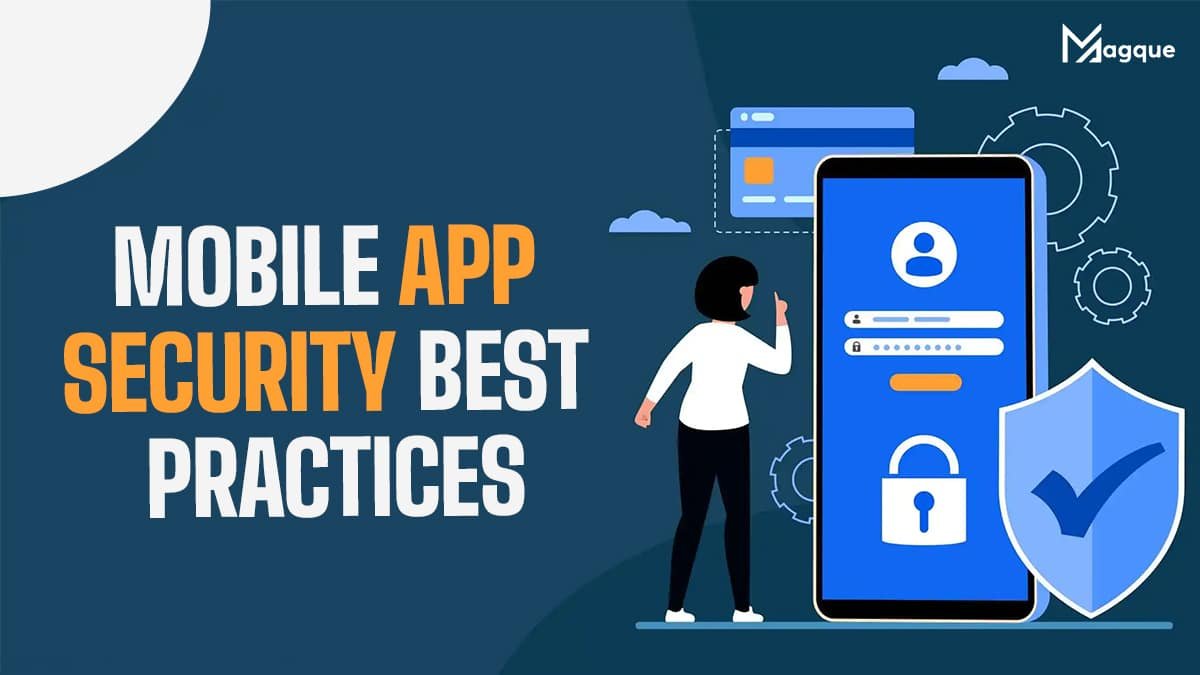In today’s digital age, where smartphones have become an integral part of our lives, ensuring the security of mobile applications is paramount. With the increasing number of cyber threats and data breaches, implementing robust security measures is essential to protect users’ sensitive information. In this blog post, we’ll delve into the best practices for mobile app security to safeguard your app and its users.
Understanding the Importance of Mobile App Security
Mobile apps often handle sensitive data such as personal information, financial details, and login credentials. Any security breach can lead to severe consequences, including identity theft, economic loss, and damage to your brand’s reputation. Therefore, prioritizing mobile app security is crucial for protecting your users and maintaining trust and credibility in the market.
Implementing Secure Authentication Methods
One of the fundamental aspects of mobile app security is implementing secure authentication methods. Utilizing strong passwords, biometric authentication (such as fingerprint or facial recognition), and two-factor authentication (2FA) adds an extra layer of security to prevent unauthorized access to the app. Incorporating these measures can significantly reduce the risk of account compromise and data breaches.
Securing Data Transmission
When transmitting data between the mobile app and the server, encryption is essential to prevent interception by unauthorized parties. Utilizing protocols like HTTPS (Hypertext Transfer Protocol Secure) for communication ensures that data exchanged between the app and server remains encrypted and secure. Additionally, avoid storing sensitive information locally on the device unless necessary, as it increases the risk of data theft in case of device loss or theft.
Regular Security Updates and Patches
Keeping your mobile app up-to-date with the latest security patches and updates is crucial for addressing newly discovered vulnerabilities and protecting against emerging threats. Regularly review and update third-party libraries and dependencies used in your app to mitigate security risks associated with outdated or vulnerable components. By staying proactive in addressing security vulnerabilities, you can minimize the risk of exploitation by malicious actors.
Educating Users About Security Practices
In addition to implementing robust security measures on the app’s end, educating users about security best practices is equally important. Provide clear guidelines on creating strong passwords, avoiding suspicious links or downloads, and being cautious while sharing personal information. Empowering users to take proactive steps to protect their data creates a collaborative approach toward enhancing overall app security.
Addressing Common FAQs About Mobile App Security
Q1. What are the common security threats faced by mobile apps?
Mobile apps are vulnerable to various security threats, including data breaches, malware attacks, phishing attempts, and unauthorized access.
Q2. How can developers ensure the security of third-party APIs integrated into their mobile apps?
Developers should carefully review the security measures implemented by third-party API providers and adhere to best practices for secure integration and data handling.
Q3. Is it necessary to conduct regular security audits for mobile apps?
Regular security audits help identify vulnerabilities and weaknesses in the app’s security posture, allowing developers to take timely corrective actions.
Q4. What role does encryption play in mobile app security?
Encryption ensures that data transmitted between the app and server remains unreadable to unauthorized parties, protecting it from interception and tampering.
Q5. How can users identify if a mobile app is secure before downloading it?
Users should look for indicators such as developer reputation, user reviews, permissions requested, and security certifications to assess a mobile app’s security before downloading it.
By following these best practices and addressing common security concerns, you can enhance the security of your mobile app and provide users with a safe and trustworthy experience. Investing in mobile app security is not just a precautionary measure—it’s a fundamental aspect of building and maintaining a successful app in today’s digital landscape. And be sure to explore Magque, your go-to source for the latest and most intriguing updates in the realms of informative tips & reviews!
Read Also This :- Securing Your Mobile Devices



















